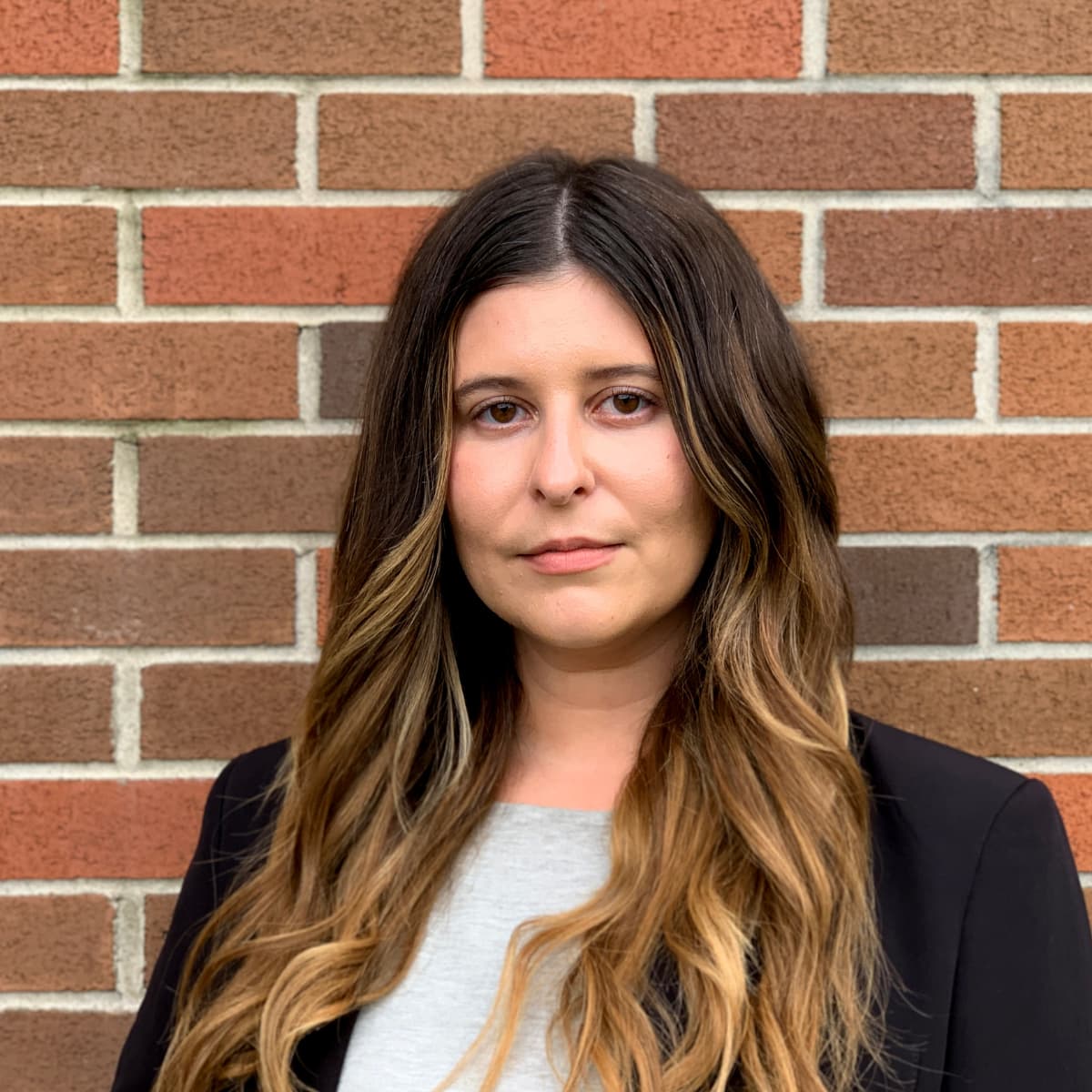The human-animal bond is a cherished relationship. Pets are members of our families who enrich our lives with unconditional and unspoken love. Our compassion and care for them is endless.
The emotional and ethical challenges that arise when a beloved pet becomes sick can deeply impact pet owners and their families. Since 2020, the Ontario Veterinary College (OVC) has offered a support service to clients that few animal hospitals have in place: Veterinary Social Work.
Sarah Bernardi is a registered veterinary social worker. She supports pet owners and patient care teams across OVC’s Health Sciences Centre (HSC), including the Companion Animal Hospital, Animal Cancer Centre, Large Animal Hospital and the Emergency and Critical Care Service.
“Animals are deeply woven into the fabrics of our lives,” says Bernardi. “During times of crisis, people often need help to navigate the complex emotions, pressures and decisions they’re facing. I’m able to provide a broad range of support and am honoured to help people during these journeys.”
What is Veterinary Social Work?
Veterinary social work is a discipline that supports the human-animal bond. Established more than two decades ago, the profession has gained popularity in recent years as the value of the veterinary social worker becomes more widely understood by pet owners and clinicians alike.
Veterinary social workers have a deep understanding of the emotional connection we share with animals, the many benefits of this connection, and the range of concerns that pet owners may experience during a pet health crisis.
Veterinary social workers are members of the multidisciplinary patient care team and work across a range of animal industries, from zoos and farms to shelters and animal hospitals. They hold specialized knowledge in human-animal interactions, animal welfare issues, psychoeducation and mediation. In companion animal care, they work alongside veterinarians to support both pet owners and the veterinary team where needed. At OVC, this position is funded entirely by OVC Pet Trust.
Supporting OVC Clients
 As a member of the patient care team at OVC, Bernardi is available to guide pet owners through their worry, stress and grief when family pets experience health emergencies.
As a member of the patient care team at OVC, Bernardi is available to guide pet owners through their worry, stress and grief when family pets experience health emergencies.
“In essence, I’m here to support the human needs that arise in the relationship between humans and animals,” she says, noting that many clients struggle both emotionally and cognitively when stress is heightened.
“During times of crisis, things like decision-making and communication can become difficult. Owners sometimes need help to understand the medical options that veterinarians are presenting, and they often benefit from having someone who can take the time to talk through the complexities of their situation and support them to make the best possible decisions for their pets.”
Some of the services that Bernardi offers to clients may include:
- Providing emotional and decision-making support during emergency medical treatment, quality-of-life conversations and euthanasia
- Liaising between pet owners and the veterinary medical team by helping communicate questions, concerns and needs, and by assuring the medical team’s information is presented in a manner that owners can understand
- Crisis intervention
- Being present before, during and/ or after euthanasia depending on each client’s preference
- Linking pet owners to additional mental health and community supports
- Providing confidential, short-term grief support
 Accessing the Veterinary Social Work Service
Accessing the Veterinary Social Work Service
Clients of OVC’s Companion Animal Hospital, Large Animal Hospital, Animal Cancer Centre and the Emergency and Critical Care Services can access counselling by emailing sberna02@uoguelph.ca or calling 519-823-8830. For pet owners who have lost a beloved animal companion, Bernardi will often reach out personally to offer support. These services are confidential and free of charge.
“Veterinary social work is not a common offering at animal hospitals,” says Bernardi. “OVC’s decision to launch this service for clients in 2020 was quite progressive, and based on the value it brings to both individuals and veterinary teams, I hope to see our profession become more commonplace in animal care settings.”
What Clients are Saying
“We found great comfort, support and compassionate understanding with Sarah as we continued to process the deep grief of losing our precious Dolly. Her counselling was beneficial, and it helped to talk with someone who truly understands and cares. This was an invaluable service offered to us at a time when we needed it the most.”
- Patti and Alex Erdie, owners of beloved feline companion Dolly
Images in this story (top to bottom): iStock photo of a person's hand and a dog's paw; Sarah Bernardi; iStock photo of a cat sitting in a grassy field
This story, written by Becky Rothwell, originally appeared in Best Friends magazine (Spring/Summer 2024).

